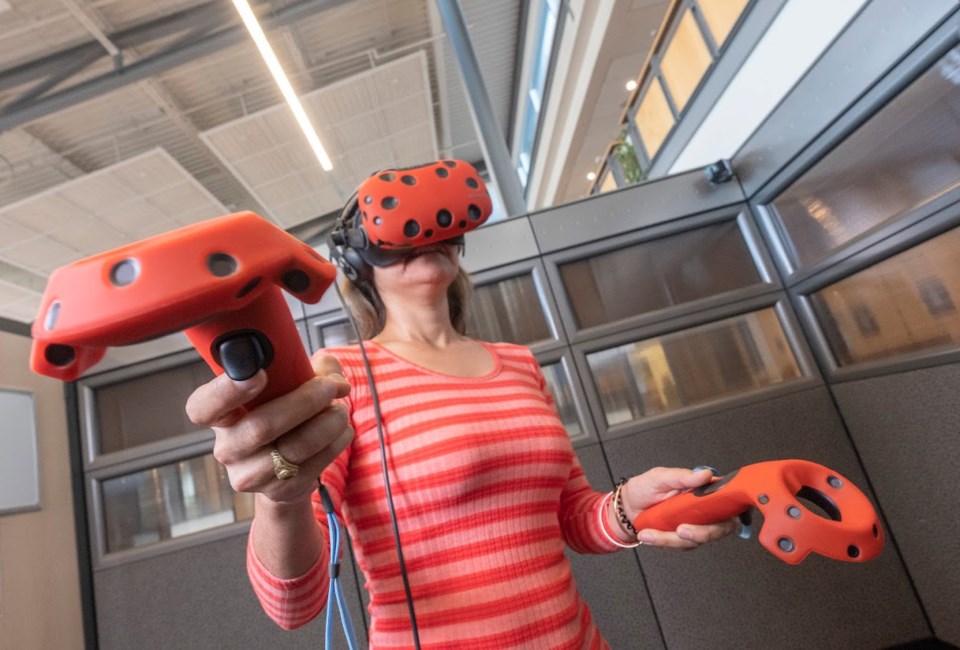NEWS RELEASE
GEORGIAN COLLEGE
*************************
In November 2020, Georgian launched a bold strategy aimed at providing the best student experience by developing and implementing innovative methods of academic delivery and leveraging technology to provide exceptional service throughout the student journey. The Government of Canada’s Future Skills Centre announced today it is investing $955,200 in the college’s multi-year, multi-phase project.
“The COVID-19 pandemic has only helped to accelerate our plans,” said Dr. MaryLynn West-Moynes, Georgian College President and CEO. “Georgian is an early innovator and this significant investment from the Future Skills Centre will help to enhance our digital learning resources and student services to position Georgian for success now and into the future.”
Regional growth and new digital demands are causing many industries, such as health, manufacturing, high-tech and trades, to change rapidly. Demand for graduates with advanced digital skills in extended reality (XR) – simulations, augmented reality (AR), virtual reality (VR) and multimedia and comfort working remotely – are rising.
Georgian’s digital innovation commitment will ensure the college continues to produce top talent by integrating XR technologies into its programs. While virtual experiences won’t replace hands-on learning, they can boost students’ confidence by unlocking new ways for them to practice, engage, and socialize.
“Georgian is committed to meeting the unique and evolving needs of a new generation of students who want and expect to learn differently,” said Dr. West-Moynes. “At the same time, we know technology can play a significant role in making education more accessible in the communities we serve and that today’s employers are increasingly looking for graduates with a digital innovation skill set.”
The college will use the funding for three pilot projects:
College-wide transformation is focused on elevating the college’s capacity to offer XR to students and employees, including access to a virtual campus; establishing multimedia studios to empower faculty to create original content to enhance teaching and learning; and using a change management process to help employees understand how to use XR in their work and how it can lower barriers for students who require a modified learning model.
Departmental transformation is centred around using XR to augment and enhance student learning in existing health, wellness, and science courses. Students will gain access to virtual environments and simulations that enable experiential learning opportunities and the ability to practice skills on-campus and at home. Learnings from this pilot will help the college expand to other academic areas.
Program transformation addresses two key barriers for women and Indigenous peoples entering construction trades between the ages of 16 and 45, namely (a) accessibility, and (b) knowledge-gap issues. A personalized adaptive learning model will be launched to enrich the student learning experience and tailor each student’s learning path using XR. Outcomes will help the college transform other skilled trades programs in similar ways.
Georgian is keenly interested to share the knowledge, strategy and best practices gained through these projects with other institutions so they can amplify efforts in this emerging area of need.
Pedro Barata, Executive Director of the Future Skills Centre, says this program is a perfect example of FSC’s investment in innovative and radical approaches to training to support economic recovery powered by technological advancement.
“This program will enable people to enhance their skills in emerging technologies such as extended reality and augmented reality, increasing their employability while at the same time helping industry by increasing the pool of future employees with advanced digital skills,” said Barata. “This is just one of the exciting shock-proofing projects that FSC is investing in to build a future playbook for shared prosperity, and help Canadian workers and businesses seize opportunities in our future economy.”
The Future Skills Centre was announced by the Government of Canada in February 2019 as a result of a commitment in the 2017 budget to establish a new organization to support skills development and measurement in Canada. It is a forward-looking, pan-Canadian organization that prototypes, tests, and measures innovative approaches to skills training and employment development.
The Digital Innovation Strategy project is funded by the Government of Canada’s Future Skills Centre.
*************************



